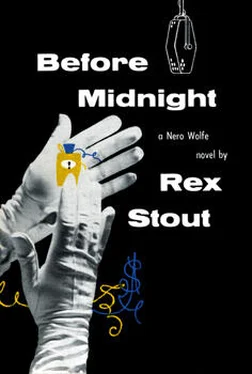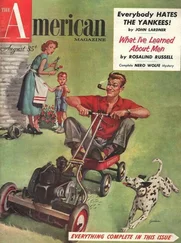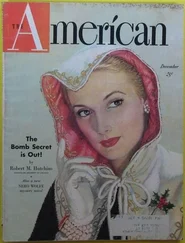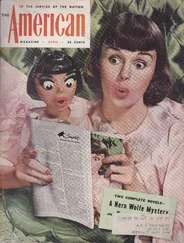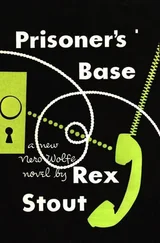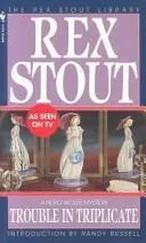Heery turned a hand over. “There’s Pat O’Garro. He knows about as much about advertising, my kind, as I know about Sanskrit, but he’s at the very top as a salesman. He could sell a hot-water bottle to a man on his way to hell, and most of the accounts LBA has today, big and little, were landed by him, but that’s nothing in my pocket. I don’t need someone to sell me on LBA, I need someone who can keep my products sliding over the counters from Boston to Los Angeles and New Orleans to Chicago, and O’Garro’s not the man. Neither is Vern Assa. He started in as a copy writer, and that’s where he shines. He has a big reputation, and now he’s a member of the firm — so is O’Garro of course. I did a lot of analyzing of Vern and his stuff during the years after Lippert died, and it had real quality. I recognize that, but there was something lacking — the old Lippert touch wasn’t there. It’s not just words, you’ve got to have ideas before you’re ready for words, and LBA didn’t have any that were worth a damn until Louis Dahlmann came along.”
He shook his head. “I thought my worries were over for good. I admit I didn’t like him, but there are plenty of people to like. He was young, and within a year he would have been a member of the firm — he could have forced it whenever he pleased — and before too long he would be running the show, and he had a real personal interest in my account because it appealed to him. Now he’s dead, and I’m through with LBA. I’ve decided on that, I’m through with them, but this goddam contest mess has got to be cleaned up. This morning, when they suggested hiring you, I didn’t have my thoughts in order and I told them to go ahead, but with the situation the way it is and me deciding to cut loose from them as soon as this is straightened out it doesn’t make sense for LBA to be your client. It will be my money you’ll get anyhow. You were a little too quick tearing up that check.”
“Not under the circumstances,” Wolfe said.
“You didn’t know all the circumstances. Now you do — at least the main points. Another point, some important decision about this contest thing may have to be made at any minute, and be made quick, about what you do or don’t do, and as it stands now they hired you and they’ll decide it. I won’t have it that way. I’ve got more at stake than they have.” He took the black leather case from his pocket. “What shall I make it? Ten thousand all right?”
“It can’t be done that way,” Wolfe objected. “You know it can’t. You have a valid point, but you admit you told them to come and hire me. There’s a simple way out: get them on the phone and tell them you wish to replace them as my client, and if they acquiesce they can speak to me and tell me so.”
Heery looked at him. He put his palms on the chair arms, and spread his fingers and held them stiff. “That would be difficult,” he said. “My relations with them the past year or so, especially Buff, have been a little—” He let it hang, and in a moment finished positively, “No, I can’t do that.”
Wolfe grunted. “I might be willing to phone them myself and tell them what you want. At your request.”
“That would be just as bad. It would be worse. You understand, I’ve got to avoid an open break right now.”
“I suppose so. Then I’m afraid you’ll have to accept the status quo. I have sympathy with your position, Mr. Heery. Your interest is as deeply engaged as theirs, and as you say, the money they pay me will have come from you. At a minimum you have a claim to get my reports firsthand. Do you want me to phone them for authority to give them to you? That shouldn’t be an intolerable strain on the thread of your relations. I shall tell them that it seems to me your desire is natural and proper.”
“It would be something,” Heery said grudgingly.
“Shall I proceed?”
“Yes.”
The phone rang. I answered it, exchanged some words with the caller, asked him to hold on, and turned to tell Wolfe that Rudolph Hansen wished to speak to him. He reached for his instrument, changed his mind, left his chair, and made for the door. As he rounded the corner of his desk he pushed air down with his palm, which meant that I was to hang up when he was on — presumably to leave me free to chat with the company. A faint squeak that came via the hall reminded me that I had forgotten to oil the kitchen door. When I heard Wolfe’s voice in my ear I cradled the phone.
Heery and I didn’t chat. He looked preoccupied, and I didn’t want to take his mind off his troubles. We passed some minutes in silent partnership before Wolfe returned, crossed to his chair, and sat.
He addressed Heery. “Mr. Hansen was with Mr. Buff, Mr. O’Garro, and Mr. Assa. They wanted my report and I gave it to them. They have no objection to my reporting to you freely, at any time.”
“That’s damned sweet of them,” Heery said, not appreciatively. “Did they have anything to report?”
“Nothing of any consequence.”
“Then I’m back where I started. Have you got anywhere?”
“Now I can answer you. No.”
“Why not?”
Wolfe stirred. “Mr. Heery. I tell you precisely what I told Mr. Hansen. If my talks with the contestants had led me to any conclusions, I might be ready to disclose them and I might not, but I have formed no conclusions. Conjectures, if I have any, are not fit matter for a report unless I need help in testing them, and I don’t. You interrupted the digestion not only of my dinner, but also of the information and impressions I have gathered in a long and laborious day. Those four men wanted to come here. I told them either to let me alone until I have something worth discussing or hire somebody else.”
“But there’s no time! What do you do next?”
It took another five minutes to get rid of him, but finally he went. After escorting him to the door I went back to my desk, got at the typewriter, and resumed where I had left off on my notes of the Frazee interview. They should all be done before I went to bed, and it was after ten o’clock, so I hammered away. There were one or two remarks I had for Wolfe, and several questions I wanted to ask, but I was too busy, and besides, he was deep in a book. When I returned after seeing Heery out he had already been to the bookshelves and was back at his desk, with Beauty for Ashes , by Christopher La Farge, opened to his place, and the wall light turned on. That may not be the way you go about settling down to work on a hard job with a close deadline, but you’re not a genius.
I had finished Frazee and was well along with Wheelock when the doorbell rang. As I started for the hall I offered five to one that it was LBA and their lawyer, disregarding Wolfe’s demand to be let alone, but I was wrong. When I flipped the switch of the stoop light, one glance through the panel was enough. Stepping back into the office, I told Wolfe:
“Too bad to disturb you—”
“No one,” he growled. “No one on earth.”
“Okay. It’s Cramer.”
He lowered the book, with his lips tightened. Slowly and neatly, he dog-eared a page and closed the book on the desk. “Very well,” he said grimly. “Let him in.”
The doorbell rang again.
Wolfe and Inspector Cramer of Manhattan Homicide West have never actually come to blows, though there have been times when Cramer’s big red seamy face has gone almost white, and his burly broad shoulders have seemed to shrink, under the strain. I can always tell what the tone is going to be, at least for the kickoff, by the way he greets me when I let him in. If he calls me Archie, which doesn’t happen often, he wants something he can expect to get only as a favor and has determined to forget old sores and keep it friendly. If he calls me Goodwin and asks how I am, he still is after a favor but thinks he is entitled to it. If he calls me Goodwin but shows no interest in my health, he has come for what he would call co-operation and intends to get it. If he calls me nothing at all, he’s ready to shoot from the hip and look out.
Читать дальше
